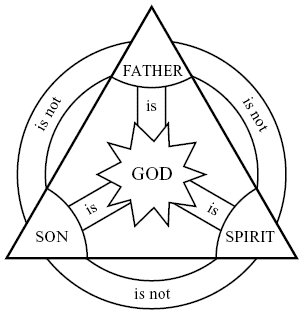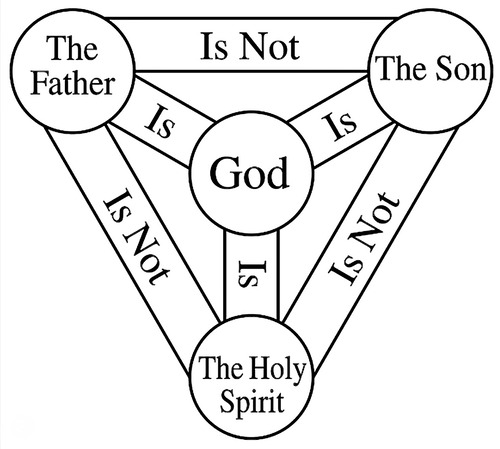Grace Alone: Why David Was ‘A Man After God’s Own Heart’
The Bible offers us a fascinating description of King David, declaring him to be “a man after God’s own heart” (1 Samuel 13:14; Acts 13:22). The designation is striking: how could God make such a statement about a man who’d committed adultery, orchestrated murder, and brought calamity upon his household through his sins? The paradox reveals profound truths about God’s sovereign grace and what He truly values in His people.
From a Reformed perspective, David’s story is ultimately about grace alone—God’s unmerited favour working in and through a deeply flawed man…
GOD’S DECLARATION IN CONTEXT
The original declaration comes as Samuel announces God’s rejection of Saul as king, saying that the Lord “has sought out a man after his own heart” (1 Samuel 13:14). Later, in Acts 13:22, Paul recounts God’s testimony: “I have found David son of Jesse, a man after my own heart; he will do everything I want him to do.”
This designation stands in stark contrast to Saul, who though impressive in outward appearance, ultimately failed to submit to God’s will. David, the overlooked shepherd boy, possessed something Saul lacked—a heart that was fundamentally aligned with God’s purposes, despite its imperfections.
A MAN AFTER GOD’S OWN HEART: THE REFORMED PERSPECTIVE
The Reformed tradition emphasises God’s sovereign election of David before any merit could be found in him. As RC Sproul noted, “In David, we see that God does not choose the qualified, but qualifies the chosen.” God’s choice of David was an act of divine grace, not a reward for David’s inherent goodness.
David’s life demonstrates God’s effectual calling and persevering grace. God chose David, equipped him, sustained him through trials, restored him after failures, and preserved him to the end. The covenant relationship between God and David was secured not by David’s faithfulness but by God’s.
FIVE EVIDENCES OF DAVID’S HEART FOR GOD
- Whole-hearted trust in God’s sovereignty: David consistently demonstrated faith in God’s timing and plans. When he had opportunities to kill Saul and seize the throne, he refused, declaring, “The Lord forbid that I should do such a thing to my master, the Lord’s anointed” (1 Samuel 24:6). This patience revealed David’s trust in God’s sovereign timing.
- Genuine repentance after sin: Perhaps nowhere is David’s heart more evident than in his response to Nathan’s confrontation regarding his sin with Bathsheba. Unlike Saul, who made excuses when confronted with disobedience, David immediately confessed, “I have sinned against the Lord” (2 Samuel 12:13). His prayer in Psalm 51:10-11 reveals the depth of his contrition. As Jonathan Edwards observed, “The heart that God seeks is not one that never fails, but one that, having failed, returns to Him in genuine contrition.”
- Zeal for God’s worship and glory: David’s passion for God’s presence was evident in his efforts to bring the Ark of the Covenant to Jerusalem and his preparations for building the Temple. He danced before the Lord with all his might when the Ark was brought to Jerusalem (2 Samuel 6:14), unconcerned with royal dignity when it came to honoring God. His psalms consistently exalt God’s attributes and call others to worship. Even in his darkest moments, David’s ultimate concern was God’s glory and the honour of His name.
- Submission to God’s Word and prophets: David demonstrated remarkable responsiveness to God’s word through His prophets. When Nathan confronted him with his sin, David submitted to the correction. When Gad delivered God’s judgement regarding the census, David accepted it without protest (2 Samuel 24:10-14). Such submission to divine authority marked David as fundamentally different from Saul—who, unlike David, repeatedly rationalised his disobedience.
- Persevering faith despite suffering: Throughout his life, David experienced intense suffering—from his years as a fugitive to the rebellions of his own children. Yet these trials revealed and refined his faith rather than destroying it. His psalms written during times of distress reveal a man who processed his pain before God rather than turning away from Him.
THE PARADOX: DEEPLY FLAWED, YET A MAN AFTER GOD’S OWN HEART
The biblical account makes no attempt to hide David’s serious moral failures. His adultery with Bathsheba and the murder of her husband Uriah represent grievous sins that brought severe consequences. The Reformed doctrine of total depravity is clearly illustrated in David’s life—even “a man after God’s own heart” was capable of terrible sin.
As Sinclair Ferguson notes, “What distinguished David was not the absence of sin but the presence of faith, not moral perfection but spiritual receptivity.” This insight captures the essence of what it means to be a person after God’s heart from a Reformed perspective.
God’s grace worked through and despite David’s weakness. His failures serve not as examples to follow but as demonstrations of God’s amazing grace toward sinners who genuinely seek Him.
APPLICATION FOR BELIEVERS TODAY
The account of David offers profound encouragement for believers today. God continues to work through imperfect people who respond to Him in faith. The heart God seeks isn’t one that never fails, but one that:
- Trusts in God’s sovereignty over outcomes and timing
- Responds to conviction with genuine repentance
- Prioritises God’s glory above personal ambition
- Submits to God’s Word as the ultimate authority
- Perseveres in faith through suffering and trials
These qualities reflect covenant faithfulness—not perfect obedience, but a fundamental orientation toward God that persists despite failures.
FROM DAVID TO CHRIST—THE REAL MAN AFTER GOD’S OWN HEART
Ultimately, David points us to Christ—the perfect “Man after God’s heart.” Jesus fulfilled what David could only imperfectly achieve. Where David failed, Jesus perfectly embodied complete submission to the Father’s will, declaring, “I always do what pleases him” (John 8:29).
The gospel hope is that through the work of Christ and the indwelling of the Holy Spirit, God is forming hearts after His own in His people. As we look at David, we see both the reality of human weakness and the transforming power of divine grace.
The question for us isn’t whether we will fail—we will—but whether our hearts are fundamentally oriented toward God. In faith, repentance, and worship. For it is such hearts that God declares to be “after His own.”
MAN AFTER GOD’S OWN HEART: RELATED FAQs
Did God know David would sin when He called him “a man after my own heart”? From a Reformed perspective, God’s omniscience means He foreknew all of David’s failures before calling him. This foreknowledge doesn’t contradict the designation but rather emphasises God’s evaluation of David was based on the totality of his life and heart, not isolated incidents. God’s sovereign election of David included His plan to work through and despite David’s sins.
- How does David’s status as “a man after God’s own heart” relate to the doctrine of election? David exemplifies the Reformed understanding of unconditional election—God chose him not based on foreseen merit but according to His sovereign purpose. His selection as king and his spiritual responsiveness both flow from God’s electing grace rather than David’s inherent qualities. David’s life demonstrates God’s elect aren’t chosen for their perfection but are being perfected by the One who chose them.
- If David was forgiven for adultery and murder, does that mean these sins weren’t serious? The Reformed view maintains David’s forgiveness never minimised the seriousness of his sins—indeed, he faced severe consequences including family turmoil, even the death of his child. God’s forgiveness reflects the sufficiency of grace rather than the insignificance of sin. David’s restoration demonstrates no sin is beyond God’s forgiveness when met with genuine repentance, while the consequences he experienced affirm God’s holiness and justice.
How does viewing David as “a man after God’s own heart” affect our understanding of sanctification? David’s life reveals sanctification as a lifelong process marked by both progress and setbacks, not a straight line of improvement. The Reformed understanding sees sanctification as God’s work in believers that continues despite their failures and through their repentance. David shows us that God’s sanctifying work doesn’t prevent believers from sinning but ensures they will return to Him in repentance when they do.
- What does David’s relationship with God teach us about assurance of salvation? David’s confidence in his relationship with God even after grievous sin demonstrates the Reformed doctrine of the perseverance of the saints. His assurance was grounded not in his performance but in God’s covenant faithfulness and steadfast love. Psalm 51 shows us David feared the loss of God’s presence but never doubted God’s covenant commitment, illustrating how true assurance is compatible with genuine repentance.
- How should we understand David’s imprecatory psalms (calling for judgment on enemies) in light of being “a man after God’s own heart”? David’s imprecatory psalms reveal a heart that was zealous for God’s justice and glory, not merely seeking personal vengeance. From a Reformed perspective, these psalms express David’s understanding that God’s holiness demands judgment on evil and his desire to see God’s righteousness vindicated. Rather than contradicting his status as a man after God’s heart, these psalms demonstrate David’s alignment with God’s purposes and justice.
Did David’s special relationship with God make him a type of Christ? Reformed theology sees David as an important type of Christ, foreshadowing Jesus’ role as the perfect king, shepherd, and mediator. However, David’s failures highlight the necessity of Christ’s sinless perfection and the insufficiency of even the best human leaders. David’s story points to the need for the true Son of David who would perfectly embody what it means to be “a man after God’s own heart.”
MAN AFTER GOD’S OWN HEART: OUR RELATED POSTS
Editor's Pick

From Empty to Overflow: The Abundant Life Jesus Promised
(AND WHY YOU SHOULDN’T SETTLE FOR LESS) We're surviving, but are we thriving? If we're honest, there's a gap between [...]

What Does Jesus Save Us From?
THREE BIBLE TRUTHS ABOUT SALVATION "Jesus saves." We’ve seen it on bumper stickers, heard it shouted at sporting events, maybe [...]

If God Wants Everyone Saved, Why Aren’t They?
THE REFORMED VIEW ON GOD’S DESIRE VS HIS DECREE The question haunts every believer who has lost an unbelieving loved [...]

The One Man Mystery in Acts 17:26: Is It Adam Or Noah?
When the Apostle Paul stood before the philosophers at Mars Hill, he delivered an insightful statement about human unity: “And [...]

Megiddo Or Jerusalem: Where Did King Josiah Die?
Recent archaeological discoveries at Tel Megiddo continue to reveal evidence of Egyptian military presence during the late 7th century BC, [...]

Losing Your Life Vs Wasting It: How Are the Two Different?
AND WHY DID JESUS PRAISE THE FORMER? Jesus spoke one of the most perplexing statements in Scripture: “For whoever wants [...]

Can Christians Be Demon Possessed? What the Bible Teaches
Perhaps you’ve witnessed disturbing behavior in a professing Christian, or you’ve struggled with persistent sin and wondered if something darker [...]

Sacred Fury: What Christ’s Temple Cleansing Truly Means
Mark 11 records the crack of a handmade whip that echoed through the temple corridors. Tables crashed to the ground, [...]

Did Jesus Cleanse the Temple Twice?
OR DID JOHN DISAGREE WITH THE SYNOPTICS ON TIMING? One of sceptics’ favourite "gotcha" questions targets what they see as [...]

Self-Authentication: Why Scripture Doesn’t Need External Validation
"How can the Bible prove itself? Isn't that circular reasoning?" This objection echoes through university classrooms, coffee shop discussions, and [...]
SUPPORT US:
Feel the Holy Spirit's gentle nudge to partner with us?
Donate Online:
Account Name: TRUTHS TO DIE FOR FOUNDATION
Account Number: 10243565459
Bank IFSC: IDFB0043391
Bank Name: IDFC FIRST BANK






